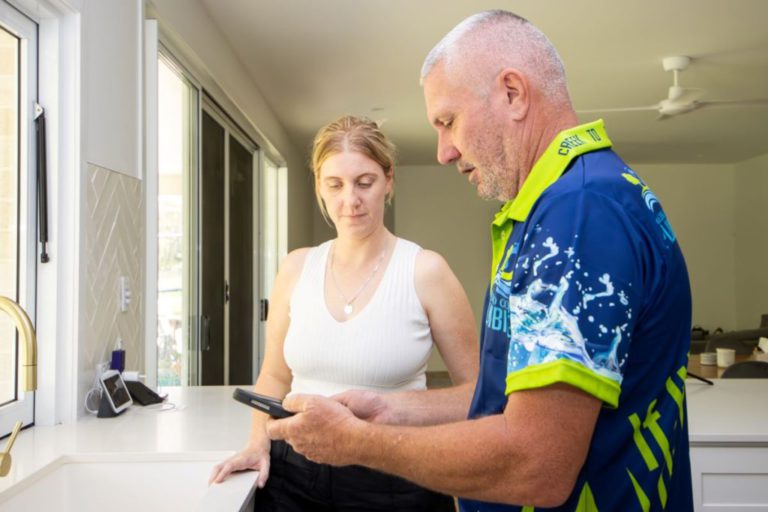Choosing the perfect hot water system for your home necessitates a comprehensive assessment of various important factors that go beyond mere functionality. In the current market landscape, consumers increasingly prioritise energy efficiency, significant long-term savings, and compatibility with modern innovations such as solar power and smart home technologies. For homeowners in Queensland, the decision-making process often revolves around two exceptionally popular options: solar hot water systems and heat pumps. By acquiring a thorough understanding of the benefits and features associated with these systems, you can empower yourself to make an informed decision that caters to your household’s specific needs.
Both options offer energy-efficient solutions, particularly when compared to traditional electric storage or gas systems. However, they function differently and serve distinct household requirements, varying climatic conditions, and financial constraints. This article will provide an in-depth exploration of the unique characteristics of each system, shedding light on the growing preference for heat pump systems among homeowners who are seeking both efficiency and cost-effectiveness.

Exploring How Solar Hot Water and Heat Pump Systems Function
Understanding Solar Hot Water Systems
Solar hot water systems utilise specially designed collectors, strategically mounted on rooftops, to capture solar energy. The harnessed solar energy is then used to heat water stored in a dedicated tank, providing an environmentally friendly solution for your hot water needs. Most systems are equipped with a backup heating method, whether electric or gas, to ensure a reliable supply of hot water during cloudy days or periods of peak demand, thereby enhancing comfort and convenience for your household.
Understanding Heat Pump Hot Water Systems
In contrast to solar hot water systems, heat pumps can operate independently of direct sunlight. They extract warmth from the surrounding air through a refrigeration cycle, transferring this heat into water stored in a tank. This process is akin to how an air conditioning unit operates, but in reverse. Heat pump systems do not require rooftop components, which simplifies their installation and makes them more accessible for a broader range of homes.
Evaluating Energy Efficiency and Performance of Hot Water Systems
| Factor | Solar Hot Water | Heat Pump System |
|---|---|---|
| Requires direct sunlight | ✓ | ✗ |
| Operates effectively in shaded areas | ✗ | ✓ |
| Available for night-time use | ✗ | ✓ |
| Requires roof space for installation | ✓ | ✗ |
| Consistent performance in winter | ✗ | ✓ (in QLD climates) |
| Eligible for STCs/rebates | ✓ | ✓ |
| Compatible with solar PV systems | ✗ (standalone) | ✓ |
Note: In the warm climate of Queensland, heat pumps typically maintain high efficiency all year round, making them a reliable and practical choice for homeowners.
Essential Factors for Installing and Maintaining Hot Water Systems
The installation of solar hot water systems requires careful placement of collectors on your roof, which can complicate the entire process, especially in older homes or those with restricted roof access. Elements such as shading, roof orientation, and pitch can significantly influence performance, making meticulous planning a critical step. Additionally, the positioning of the tank and plumbing can limit configuration options, resulting in a more intricate installation experience compared to other types of systems.
Conversely, heat pumps are typically installed at ground level and come in either integrated or split systems, occupying a similar footprint to conventional electric tanks. They do not necessitate any rooftop components, which streamlines the installation process, making it more manageable for homeowners. Moreover, maintenance for heat pumps tends to be less complex as they are less exposed to UV rays and harsh weather conditions, which reduces both the frequency and expenses associated with upkeep.
Maximising Financial Savings with Your Hot Water System Choice
Both solar hot water systems and heat pumps significantly contribute to lowering energy bills. However, heat pumps often provide greater savings for households that:
- Receive limited sunlight during the day and require a reliable hot water source
- Use hot water during early morning or late evening hours when energy prices are generally higher
- Already have rooftop solar PV systems and wish to enhance their energy self-consumption
- Prefer not to rely on roof structures or do not want to penetrate roof tiles
As heat pumps operate on electricity, they can be programmed to function during peak solar generation hours. This adaptability makes them an ideal companion to existing solar panel systems. Instead of exporting excess energy at lower feed-in tariffs, homeowners can directly utilise their solar energy to efficiently heat water, thereby maximising both cost-effectiveness and energy savings.
Evaluating Initial Costs and Available Rebates for Hot Water Systems
Both solar hot water systems and heat pumps are eligible for Small-scale Technology Certificates (STCs), which can significantly lower the purchase price, making these systems more attainable for homeowners. The number of STCs available is determined by various factors, including geographical location, system size, and efficiency ratings. Additionally, heat pump systems may qualify for specific rebates in Queensland under the Energy Efficient Communities Program, which vary based on household attributes and the type of installation.
To navigate these rebate options effectively, it is highly advisable to consult with a qualified installer like Creek to Coast Plumbing. They can offer expert advice on eligible systems and handle the rebate application process, ensuring that you benefit from all potential savings as part of the installation service.
Finding the Most Suitable Hot Water System for Queensland Homes
In the coastal regions of Queensland, including the Sunshine Coast and Moreton Bay, heat pumps frequently outperform solar hot water systems due to their dependable performance, straightforward installation, and compatibility with solar energy technologies. They are particularly advantageous for homes that experience shading or have semi-sunny conditions and are exceptionally effective in residences equipped with battery storage or smart controllers that optimise energy usage.

Identifying the Best Options for Hot Water Systems
While solar hot water systems continue to hold their significance, especially in homes that have unshaded, north-facing roofs with high daily hot water demands, heat pump systems offer a more versatile and comprehensive solution for many homeowners across Queensland. They provide consistent performance, uncomplicated installation processes, and seamless integration with existing solar PV systems, making them a valuable investment for energy-conscious households.
If you are contemplating an upgrade, we encourage you to explore our Heat Pump Hot Water Systems Installation Page for more details or to request a customised quote tailored to your specific requirements.
The Article: Heat Pumps vs Solar Hot Water: Which is Superior? first appeared on https://writebuff.com
The Article Heat Pumps vs. Solar Hot Water: A Comparison of Efficiency Was Found On https://limitsofstrategy.com





